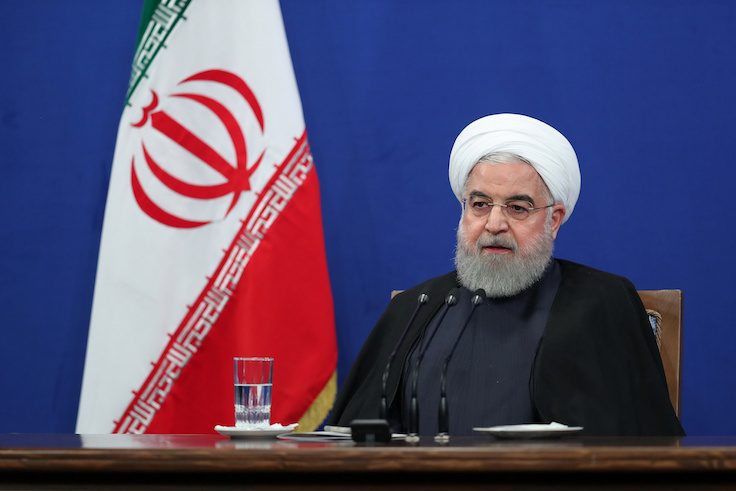DUBAI/GENEVA (Reuters) - Iran will start injecting uranium gas into centrifuges at its underground Fordow enrichment facility, Iranian President Hassan Rouhani said on Tuesday, a highly symbolic breach that will complicate European efforts to salvage Tehran's nuclear deal.
Under the 2015 agreement between Iran and world powers, Iran agreed to turn Fordow into a "nuclear, physics and technology center" where 1,044 centrifuges are used for purposes other than enrichment, such as producing stable isotopes, which have a variety of civil uses.
Iran has gradually scaled back its commitments to the deal, under which it curbed its nuclear program in exchange for the removal of most international sanctions, after the United States reneged on the agreement and reimposed sanctions.
The pact allows Iran only to spin the centrifuges at Fordow, located inside a mountain near the holy city of Qom, without injecting gas. Uranium gas injection could allow production of enriched uranium, banned at the site under the pact.
"Starting from Wednesday, gas will be injected into centrifuges at Fordow as part of part of our fourth step to reduce our nuclear commitments to the deal," Rouhani said in a televised speech.
Kazem Gharibabadi, Iran's ambassador to the International Atomic Energy Agency (IAEA), said Iran had informed the agency over "the start of injecting UF6 (uranium hexafluoride) into centrifuges at Fordow on Wednesday".
The deal bans nuclear material from Fordow and by injecting UF6 into centrifuges, the facility will become an active nuclear site rather than a research plant as permitted under the pact.
"The IAEA was requested to send its inspectors to monitor the process," Gharibabadi said, quoted by state television. The IAEA monitors Tehran's compliance with the deal.
ENRICHMENT WORK
Meanwhile, Iran's nuclear chief Ali Akbar Salehi said Iran will enrich uranium to 5% at Fordow on Wednesday. Tehran could also enrich uranium to the 20% level if needed, he said, "but right now there is no need for that".
The deal capped the level of purity to which Iran can enrich uranium at 3.67 percent - suitable for civilian power generation and far below the 90% threshold of nuclear weapons grade. Iran denies ever having aimed to develop a nuclear bomb.
U.N. nuclear inspectors reported in July that Iran had cranked up enrichment to 4.5% purity as its first step to decrease its nuclear commitments.
These measures will further complicate the chances of saving the accord, which European powers, Russia and the European Union have called on Iran to respect.
The U.N. Secretary-General Antonio Guterres called on all parties to abide fully by their commitments under the pact.
Iran said on Monday it had accelerated enrichment by doubling the number of advanced IR-6 centrifuges in operation, adding that it was working on "a prototype called the IR-9, which works 50-times faster than the IR-1 centrifuges".
Rouhani gave another two-month deadline to Britain, France and Germany to salvage the deal by protecting Iran's economy from crippling U.S. sanctions reimposed in May after Washington's withdrawal from the deal.
"We can't unilaterally accept that we completely fulfill our commitments and they don't follow up on their commitments," Rouhani said. Tehran says talks are possible if Washington lifts sanctions and returns to the deal.
"All these measures are reversible if other parties fulfill their commitments ... We should be able to sell our oil and to transfer its money into the country," Rouhani said, referring to U.S. sanctions on Iran's oil and banking sectors.
(Additional reporting by John Irish in France, Francois Murphy in Vienna, Babak Dehghanpisheh in Geneva, Michelle Nichols at U.N., Writing by Parisa Hafezi, Editing by Angus MacSwan)
